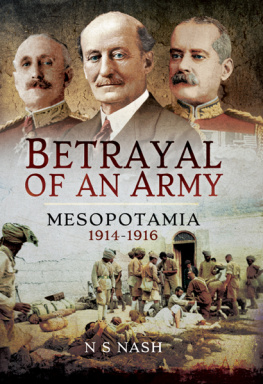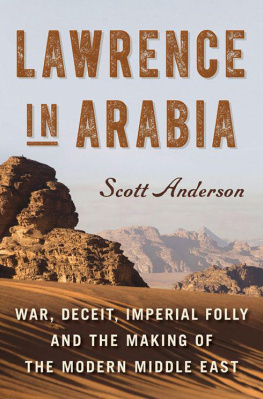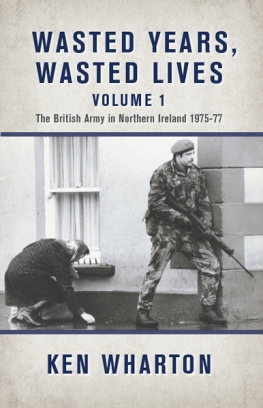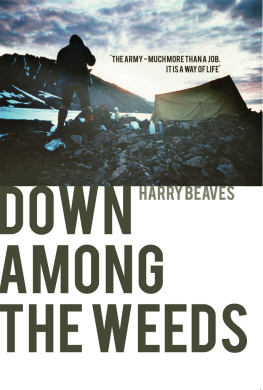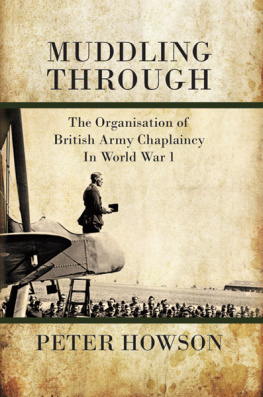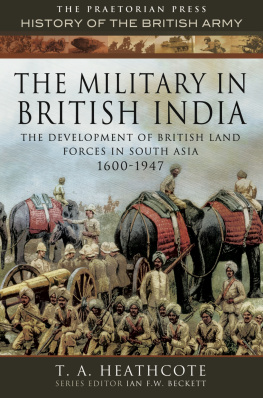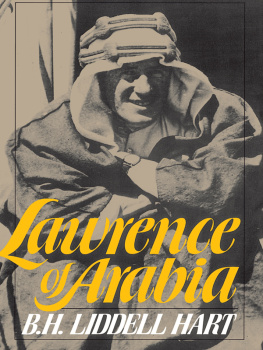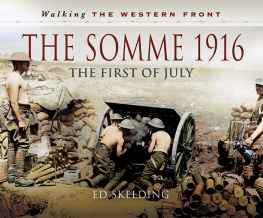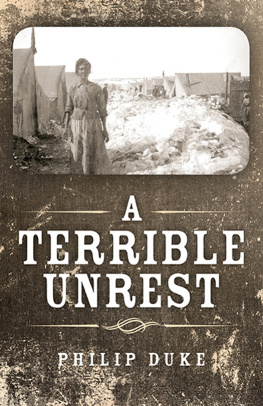
By the same author
The Colonels Table
Reveille & Retribution
Spit & Polish
Friend & Foe
On Laffans Plain
K Boat Catastrophe
Chitrl Charlie
Valour in the Trenches
Strafer Desert General
Where Tom Long Roamed
First published in Great Britain by
PEN AND SWORD MILITARY
an imprint of
Pen and Sword Books Ltd
47 Church Street
Barnsley
South Yorkshire S70 2AS
Copyright N.S. Nash, 2016
ISBN: 978 1 47384 376 9
PDF ISBN: 978 1 47384 379 0
EPUB ISBN: 978 1 47384 377 6
PRC ISBN: 978 1 47384 378 3
The right of N.S. Nash to be identified as the author of this work has been asserted by him in accordance with the Copyright, Designs and Patents Act 1988.
A CIP record for this book is available from the British Library.
All rights reserved. No part of this book may be reproduced or transmitted in any form or by any means, electronic or mechanical including photocopying, recording or by any information storage and retrieval system, without permission from the Publisher in writing.
Printed and bound in England by
CPI Group (UK) Ltd, Croydon, CR0 4YY
Typeset in Times by CHIC GRAPHICS
Pen & Sword Books Ltd incorporates the imprints of
Pen & Sword Aviation, Pen & Sword Family History, Pen & Sword Maritime, Pen & Sword Military, Pen & Sword Discovery, Wharncliffe Local History, Wharncliffe True Crime, Wharncliffe Transport, Pen & Sword Select, Pen & Sword Military Classics, Leo Cooper, Remember When, The Praetorian Press, Seaforth Publishing and Frontline Publishing
For a complete list of Pen and Sword titles please contact
Pen and Sword Books Limited
47 Church Street, Barnsley, South Yorkshire, S70 2AS, England
E-mail:
Website: www.pen-and-sword.co.uk
Contents
List of Illustrations
Acknowledgements
I am indebted to Lieutenant Colonel W.W.T. Gowans who reviewed the text, suggested corrections, posed me some interesting questions and considered, in particular, my judgments. Similarly, I was fortunate that Professor Peter Liddle, who having read the text, challenged elements of my approach; I enjoyed our debate. Even though they did not necessarily entirely agree with me on all the issues I am enormously grateful to them both. Any errors or omissions are entirely mine.
At Pen and Sword, Brigadier Henry Wilson, my commissioning editor, for the fourth time, eased my path and encouraged my endeavours. Matt Jones was his usual helpful self with all matters technical. My text editor Linne Matthews was not only very skilled and professional but a delight to work with.
Where possible the attribution has been given to photographs and maps but those taken from the Internet do not always identify the original source.
Introduction
I n 2009 I was researching the Mesopotamian campaign up to the fall of Kut in April 1916. This was in order to produce my biography of Major General Sir Charles Townshend (Chitrl Charlie, Pen and Sword Books, 2010). Townshend was an individual who played a key role during that period and it was he who was, ultimately, surrendered the remnants of the 6th Indian Division to the Turks. Inevitably, he also makes a lengthy appearance in this book. He was a prisoner of war (albeit a comfortable one) when the Mesopotamia Commission sat and so he could not be interviewed, more is the pity.
Much of the research carried out in 2009 has been germane to this book. Facts remain the facts and, over the last century, nothing has happened to change them, although here they are viewed from a different angle and in a wider context.
The far-reaching and abundant military naivety, at a very senior level, that was revealed in Chitrl Charlie shocked me. The painful impact that gross mal-administration had upon tens of thousands of British and Indian soldiers made a strong impression and I resolved to return to the subject ere long.
This book is the result and the title is a statement, not a question.
In order to consider the validity of the case against the men who were, allegedly, culpably incompetent it is necessary to visit the battlefields, but it is not my intention to rehash in minute detail the ghastly events that led to so many fruitless deaths.
A hundred years after the events I describe, the soldiers bones still lie in the desert sand, unvisited in a land once more wracked with extreme violence. One wonders was it all worth it?
The Mesopotamia Commission (MC) was formed to examine a toxic combination of misjudgements, dishonesty and ineptitude. When the MC reported, in June 1917, its findings embarrassed His Majestys Government (HMG), which was at a loss to see a way forward.
The formation and composition of the Commission was flawed. Although it was empowered to take evidence on oath it had no powers of discipline and its only weapon was that of censure. When the Commissions work was completed its Report became a political football and the tangible benefits were scant. Throughout this text, extracts from the Mesopotamia Commission Report (MC Report) are in italics.
The judgements made in this book are based on my interpretation of the contemporary accounts and the MC Report. My readers must decide if I have struck a fair balance and draw their own conclusions.
Tank Nash
Malmesbury
April 2016
Chapter 1
Hardinge at Bay
A leader is a dealer in hope.
(Napoleon)
3 July 1917 was a warm summer day in London and the Chamber of the House of Lords was overcrowded and stuffy. The attendance of so many peers was a clear indication that something of significance was about to happen.
A tall, slim, 59-year-old man in a frock coat entered, stood briefly by the Clerks table and looked around. On either side of the Chamber he saw four terraces of benches, all completely filled, which rose above the floor of the House. Above them ran a line of galleries, occupied this afternoon by peeresses and members of the lower house.
The chattering voices were stilled and all eyes were focussed on the man at the Clerks table.
He was Lord Hardinge, latterly Viceroy of India, and one of the most distinguished public servants in the land. He also had the dubious distinction of being the most senior of those subject to severe criticism in the recently published Mesopotamia Commission Report.
This report, now firmly in the public domain, published the result of enquiries into the conduct of the disastrous military campaign of 191416. This took place in what was, allegedly, the Garden of Eden but which turned into a version of hell for the British and Indian soldiers engaged there. Of those, 30,000 died and thousands more were still languishing in Turkish prison camps in conditions of extreme privation.
Lord Hardinge was to make a public statement, which his friends all hoped would completely rebut the absurd charges laid at his door. This was a key moment in the career of a distinguished public servant and also of some significance to His Majestys Government, led by the priapic David Lloyd George.
Hardinge walked briskly up to the table. Exuding self-control and apparently quite unflustered by the situation, he laid his notes down. He tugged at his coat, put on his spectacles, rested his right hand on his notes and allowed his left arm to hang at his side. A journalist who was present observed:
His body was turned to face diagonally across the Chamber. From this position he rarely moved, and then only to turn one sheet of paper aside as he had finished reading from it.
It was a model of deliverance, clearly enunciated, in well audible, measured tones. There was no impassioned appeal to sentiment, plea for leniency of criticism. Just a plain, well thought out, logically arrayed statement of justification from the point of view of the Indian Government. It was scrupulously free from embittered recrimination.
Next page
